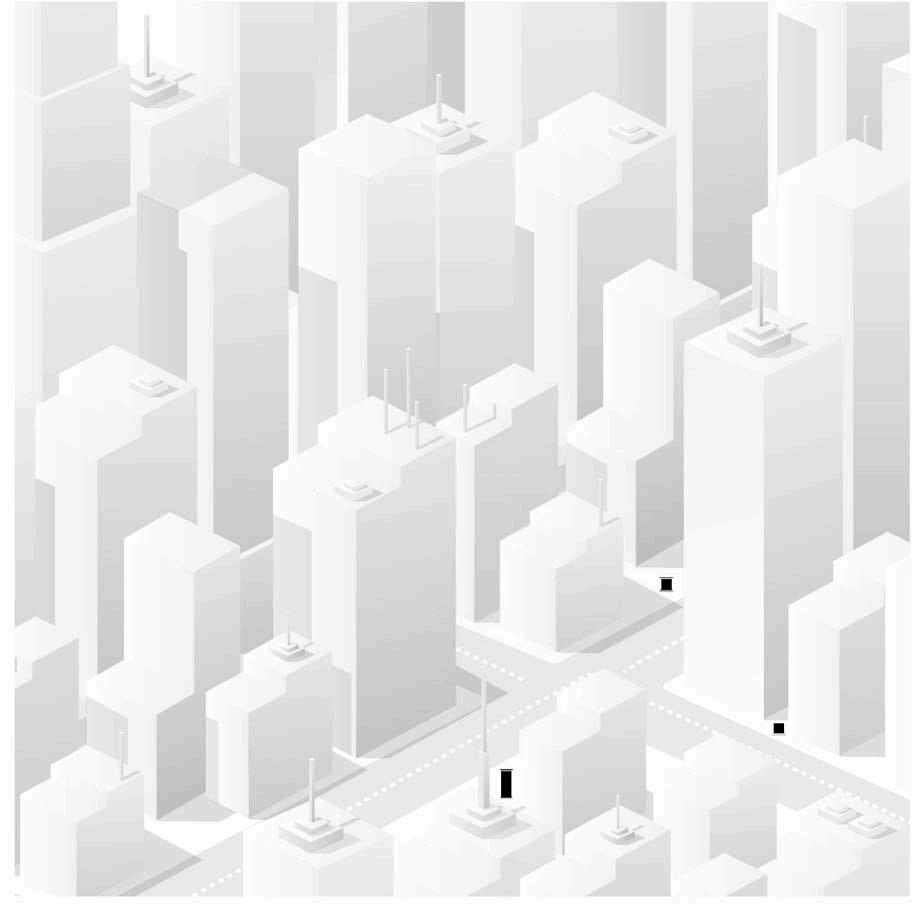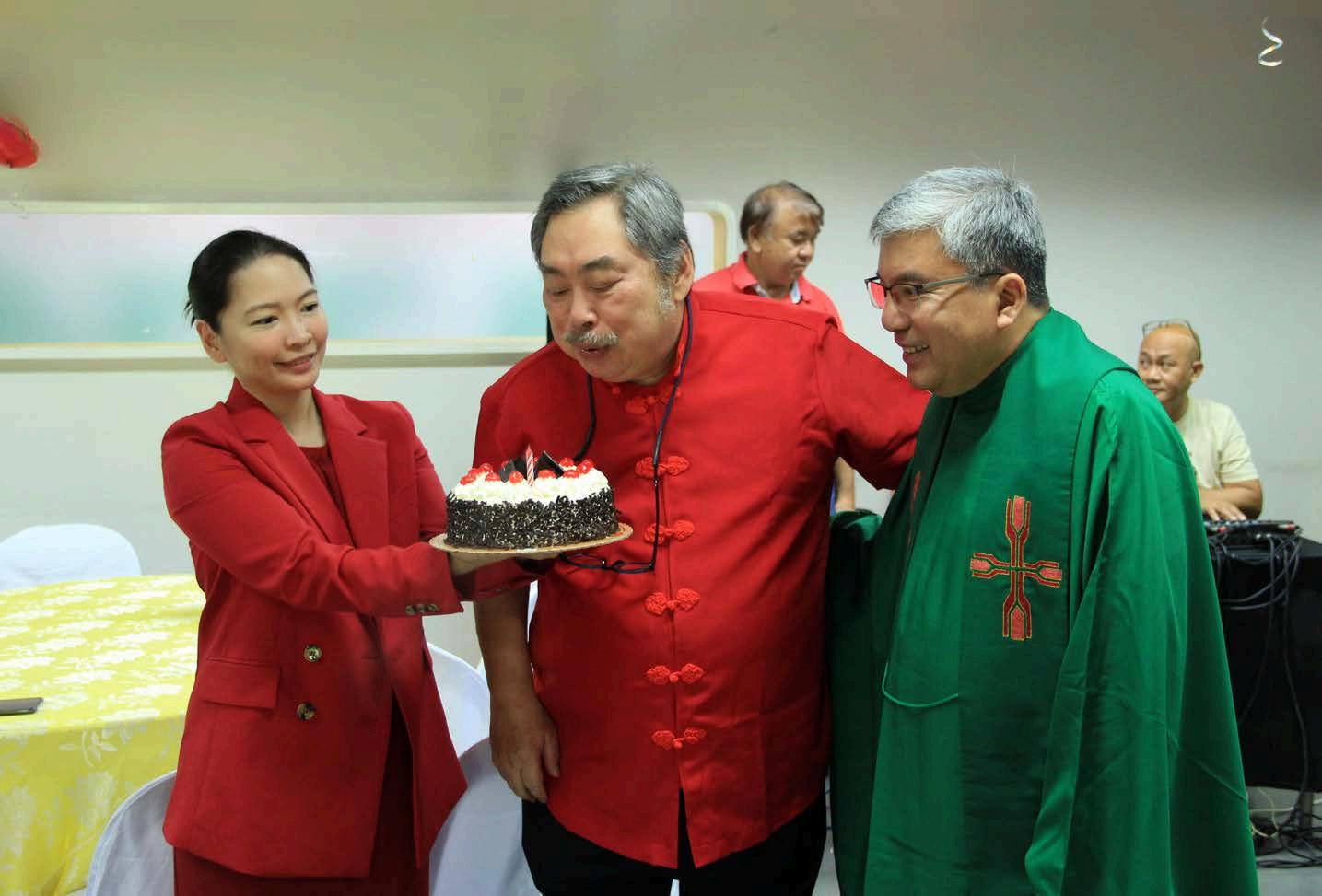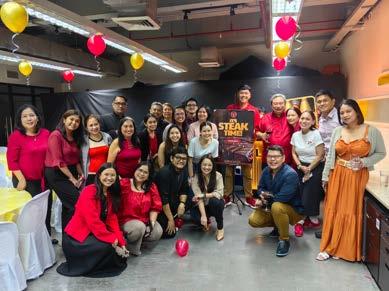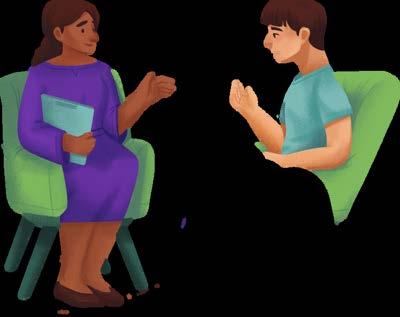



DEPARTMENT OF HEALTH AND DBB PHILIPPINES' BIYAHENG KALUSUGAN CARAVAN WINS 'BEST CAMPAIGN' AT DRAGONS OF ASIA AWARDS 2024

































Anna Chua-Norbert
Hydz Enriquez
Maricar Manuzon-Angeles
Art
Art
Contributor
Victoria Teylan
Orlan Codamos
Clodene Abrigo




















DEPARTMENT OF HEALTH AND DBB PHILIPPINES' BIYAHENG KALUSUGAN CARAVAN WINS 'BEST CAMPAIGN' AT DRAGONS OF ASIA AWARDS 2024

































Anna Chua-Norbert
Hydz Enriquez
Maricar Manuzon-Angeles
Art
Art
Contributor
Victoria Teylan
Orlan Codamos
Clodene Abrigo















DDB Group Philippines has been Great
Place To Work Certified™ anew in 2024. The renewal of the seal granted by the global authority on workplace culture, Great Place to Work® (GPTW), is a testament to the company's commitment to building a positive working environment for its employees.
The certification renewal process entailed an HR audit presentation and interview and having the group's employees undergo once again the GPTW's proprietary Trust Index™ survey that measures employees' experiences across five focus areas, namely, credibility, respect, fairness, pride, and camaraderie. The Trust Index is based on 30+ years of research and experience with leading workplaces from around the world.
According to DDB Group Philippines Chairman and CEO Gil G. Chua, the company is proud to have achieved the said certification renewal as it reaffirms the company's efforts to foster a work culture where everyone is safe, motivated, and inspired to add value to the organization.
"The Great Place to Work certification is testament to the agency group's collective efforts to foster a workplace that inspires its people to create their best work in a fun, fair, and safe environment, while being able to achieve personal and professional growth," he said.
For her part, DDB Group Philippines Group Chief Culture Officer said that the active participation of the people to answer the trust survey two years in a row is even more valuable than the recognition the company has received, made possible by the unfiltered and unconstrained feedback from all its employees.
"Our people are truly the ones who make the company a great place to work," she said.
Part of DDB Worldwide, one of the most influential marketing communications networks globally, DDB Group Philippines constantly aims to become Shapers of Society, aligned with its vision to become the indispensable creative partner that delivers positive impact to its people, its clients, and the society as a whole.
Guided by the "People First" philosophy, the group fosters a culture of holistic health, investing in the health and welfare as well as the personal and professional growth of its people. It further goes the extra mile to foster a diverse, equitable, inclusive, and fun work environment, and provide opportunities for its employees to fulfill their desire to make a difference in the communities.
Yakult has just launched its 2024 ad
campaign that aims to reestablish the iconic brand as the country’s superior probiotic drink amidst the increasing number of new ready-to-drink probiotic brands competing in the market.
Yakult has been well-loved by generations of Filipinos ever since the brand was introduced in 1978. Leveraging on this powerful legacy and the proven properties of Yakult to strengthen its position as the top-of-mind brand among Filipinos who want a healthy drink that will help protect their digestive system.

For this campaign, Yakult partnered with Touch XDA Inc. to craft the media strategy that will meet the brand’s goals of relaunching the brand especially to millennial parents and working individuals, as well as to Gen Z students and young professionals.
The ad campaign has for its hero material a 30-seconder TV commercial and digital video done in tandem with Catalytx Advertising Inc, which is the brand’s long-time advertising partner. The material shows a mother-and-son tandem enjoying the drink knowing that it will help them have good gut health.

The mom and kid interaction is then followed by a creative depiction of how Yakult protects one’s intestinal health.
Filipinos have been enjoying Yakult for its healthy properties for over 45 years now, and the relaunch campaign seeks to remind the younger generation that “Nothing beats the OG” as the leading and most trusted probiotic brand. After all, the brand remains as the only probiotic drink with 8 billion Live Lacticaseibacillus paracasei strain Shirota (LcS) in every bottle. This is known to help balance good and bad bacteria in the intestines, improve digestion, and boost immunity, that is, with proper diet and exercise.
The media launch for the new campaign aims to reignite awareness through reach-generating media platforms, as well as encourage word of mouth through activities and media entities’ initiatives. These have so far included national TV placements on top-rating and relevant programs that cater to family, youth and working class; and Premier Volleyball League partnership, where the brand sponsors a popular league throughout the conference via TVC spots, on-ground execution, among others.
Touch XDA’s media plan for the Yakult relaunch campaign has also been laid out going into the sustaining phase of the campaign. The agency is set to implement more media amplifications in the coming months, so watch out for these.
One of the dynamic local media agencies in the Philippines, Touch XDA, Inc. provides an array of media and activation solutions across all forms of media. Its Experience Design Architects (XDAs) design and deliver experiences that influence – bringing simplicity and purpose to the complexity and chaos of the consumer experience economy.




















DDB Group Philippines, through its PR
arm Ripple8, hosted in midSeptember the "Tuesday Club", a regular forum by top Philippine media publications and corp comm teams.
The fellowship officially introduced DDB Group Philippines and Ripple8’s top executives and teams to the prestigious group’s columnists, journalists, and corporate members, and even rekindled old friendships.
Participants at the special gathering held at a five star hotel in Ortigas had a light discussion of industry happenings and current events, as they enjoyed Asian and continental specialties at the venue.
The Tuesday Club also honored DDB Group Philippines Chairman and CEO Gil G. Chua with a cake for his 67th birthday.
Thank you, Tuesday Club!


The Philippine National Bank (PSE: PNB)'s
"Every Step Together" campaign with integrated marketing solutions agency Optimax Communications Group was recognized as the "Best Branded Digital Ad" at the Catholic Mass Media Awards (CMMA) 2024. The Award winners were recently broadcasted live on CMMA's Facebook page.
Now in its 46th year, the CMMA Awards' Advertising Categories celebrate both advertisers and their respective agencies which have demonstrated exceptional creativity and dedication in crafting ads that promote values and inspire positive change.
PNB Head of Marketing Services Jen Ng thanked CMMA for the award.
"We are honored to win this recognition from a well-respected institution like the Catholic Mass Media Awards. As one of the country's oldest and largest financial institutions, PNB has taken care of the financial services needs of generations of Filipino families. Our Every Step Together campaign further solidifies our commitment to become a dependable financial partner that offers stability and security for Filipino families worldwide," Ng said.
The campaign is in partnership with PNB's digital agency, Optimax, an independent media agency that in recent years has evolved into a hybrid integrated marketing solutions (IMC) firm. Optimax is part of the award-winning agencies of DDB Group Philippines.
"It's with PNB that we started our transformation journey from a media agency to a hybrid integrated marketing communications agency. We are always glad and proud to be receiving recognitions for the work we do with them," said Optimax General Manager Ela F. Chua.
One of the largest privately-owned Philippine commercial banks in the Philippines, PNB has the biggest number of overseas offices and one of the largest domestic branch networks among local banks. To date, the Bank has a total domestic footprint of over 630 branches and more than 1,700 ATMs strategically located nationwide, and has more than 72 overseas branches, representative offices, remittance centers and subsidiaries across Asia, Europe, the Middle East, and North America.


DDB Group Philippines has made it to



They have proven that, as advertising benefits from people’s ideas, the most diverse the workplace, the richer the work output, the happier clients, and the better the bottom line.
With the advertising industry's bad record on gender injustices, the company also constantly strives to create inclusive workplaces so that all employees—regardless of rank or role—feel trusted, valued, and psychologically safe.
Also integral to DDB's DEI practices is ensuring safe spaces by educating employees about the anti-sexual harassment law that prohibits sexual/gender-based harassment & discrimination, putting accountability measures in place, and monitoring employee grievances, if any. It's proactive as well in promoting such in the industry as well as through community and industry forums.
Another DEI practice at the DDB workplace is allowing different kinds of flexible work arrangements – giving employees leeway to work in ways that enable them to perform at their best while being able to manage their life situations.
Given the evolving landscape of work and family life, the company embraced work-from-home (WFH) and hybrid work arrangements as a response to external challenges and as a strategic move to build a safer and more supportive working environment.





I’ve spent 15 years advocating for the protection of women
and children from abuse, so it felt surreal when I found myself in the middle of a cyber extortion scheme. On September 26, I received an email that made my stomach drop—a link to a Google Drive filled with AI-generated, fake images of me in lewd and inappropriate poses. My face, but definitely not my body. And the demand? Pay $7,000, or they’d release the images in 24 hours.
At first, I couldn’t even process it. I just stared at the screen in disbelief. I clicked on the drive, and I felt blood being drained from my body. There are no words to describe seeing yourself violated and degraded that way. Shortly after, anxiety hit—what would happen to my family, my work, my clients, my reputation? I did what I thought was right: I took screen shots, I reported the email to abuse@outlook.com and abuse@gmail.com, blocked the sender, and tried to move on.
But the next day, I got another email from a different address, and the threats kept coming. His emails were a nasty mix of insults, threats of destroying me, gaslighting, and guilttripping, and a countdown on when he will make the images public, all trying to wear me down.
By Saturday, he upped his game—created an Instagram account, posted the link to the drive, and demanded $10,000. He was relentless. I started digging into the IP address and discovered it matched an IP used in bomb threat emails sent to Indian airports earlier this year. That’s when I knew it's not one person, but a syndicate I was dealing with.


I immediately reported everything to the FBI, Google, META, the DOJ, and the Philippine National Police (PNP). The PNP reached out quickly, checking if I was in immediate danger, and the DOJ gave me the legal guidance to reach out to NBI CICC and urged me to file a case. Thankfully, the government has been cracking down on these online criminals after a directive from PBBM in June.
On Sunday, the criminal sent another email to say goodbye, this was his final message he told me he wanted the entire Philippines to feel sorry for me and my family. He blamed me for being “arrogant” and not paying up, and said it was my fault that he was continuing to spread the images.

Frustratingly, Google wasn’t very helpful at first. Even though this was clearly image-based abuse, they hid behind their third-party policy. I was advised to appeal directly to the drive owner! You gotta be joking! But then I found a loophole in their policy: copyright infringement. If your images are used without your consent, it’s illegal. I filed a complaint again, this time on those grounds.
By Sunday, I hadn’t slept in five days. Every time my inbox pinged, my heart raced. I finally opened to my mom and sister because the stress was eating me alive. My sister, bless her, helped me laugh through it. “Who on earth would want AIgenerated nudes of a 45-year-old executive?” she joked, which made me lol.

I booked a session with my therapist because I knew that five nights without sleep wasn’t doing my health any favors with all the things going at work, a scandal is the last thing I need.
Looking back, I realized I did the right things, I acted quickly, used my resources, and leaned on the years of working with the Philippine Commission on Women. But even when you do everything “right,” you still feel violated. You still question if you could’ve done more.

Cybercrime is a real threat, and it’s only growing. In 2023 alone, there were almost 20,000 reported cases, with over 13,000 of those being online scams (via shopping sites, Facebook, email, and messaging apps like WhatsApp). And it’s not just scams—there’s also sextortion, hacking, credit card fraud, identity theft, phishing, and malware attacks, website being held hostage. In the first quarter of 2024, there were 49 reported cases every day.
If this ever happens to you, know that there are laws that protect you:
1. PHILIPPINE DATA PRIVACY ACT (RA 10173)
It’s illegal to steal, distribute, or use private information, your work, including messages and images, without consent.
2. CYBERCRIME PREVENTION ACT (RA 10175)
This covers online scams, hacking, data theft, and extortion.
3. ANTI-PHOTO AND VIDEO VOYEURISM ACT (RA 9995)
This law prohibits unauthorized sharing of intimate images or videos. Including OSAEC.



govmailsupport@dict.gov.ph

pnp.acg.wccpu@gmail.com

cybercrime@doj.gov.ph

ccd@nbi.gov.ph








Dfor the indigent and abandoned elderly in Rodriguez, Rizal last weekend to give cheer to its residents. Employee volunteers trooped to Anawim and started the outreach with its taho treat for the lolos and lolas.





The program proceeded with opening prayers, fun games, Bingo and song numbers, and wrapped up with a hearty lunch we ordered for all. It's DDB Cares third outreach activity in the said shelter run by the Anawim Lay Missions Foundation, and we're definitely going back to give more love to our beloved seniors.

















o you oftern get the chance to bond with your
grandparents? It's always a blessing to be in the company of our beloved lolos and lolas, who always pamper us with their love and caring ways. Not to mention the tolerance level abuelitos y abuelitas have with their grandkids.
For DDB Cares, it's now our turn to give love to the lolos and lolas of Anawim, a sanctuary for the forgotten and abandoned elderlies, located at San Isidro, Montalban. DDB volunteers visited Anawim last September 14, our third time in this home for the aged, and we hope this will be followed by more visits in the future.
Founded by Catholic lay preacher, Bro. Bo Sanchez in 1996, Anawim through the years has fulfilled its mission and vision of showing their care and concern to the neglected elderlies.
To experience a time with the elderlies of Anawim gives one moments of mixed emotions - love, joy, sadness, nostalgia, and so much more… unspoken words… a time of introspection.
These elderlies have their own share of sad stories, though they have their joyful memories, too! Surprisingly, during the visit, almost everyone had their “hugot" lines to share! The elderlies had time to share their stories, even for just a brief one. What’s important is that they are able to interact with other people outside their group. These interactions give them laughter, joy, fun and delight.

Manang Fely from Cebu was a music teacher and a guitarist. She never knew who her biological parents were and was adopted by a childless couple. She grew up to be a lady full of zest, even as an abandoned child. She was sent to school by her adopted parents and she finished a degree in Education. While Anawim may be a melancholic place, Manang Fely didn’t seem to show signs of bitterness in her heart, as she's one with a happy disposition. In fact, she has a funny bone and loves to joke!
At Anawim, she keeps herself active by making accessorial items such as bracelets and key chains. Asked how and why she’s at Anawim, she said, “When I realized that Father was not getting any younger, and sooner or later I’d be on my own, I searched for a place to stay should this time comes. I searched for a place and when I saw Anawim, I knew and felt it in my heart that this is the place I would be until my very last day.”
During our visit, I ended my opening message by singing in acapella the first 2 stanzas of the song “Bonggahan” by Sampaguita, to lighten up the hearts of everyone. It was fun! Then Manang Felyasked if she could finish the song with background music, and I agreed to it. We gave her the time, and as she sang, everybody sang along, swayed, clapped, and stomped their feet.
She was requested to stay in the front row but had preferred to stay on the second row, and when asked why, she remarked, “people in front have dementia.”
It’s not all sad stories but there are uplifting ones, too, and lots of anecdotes from the lolos and lolas themselves. We will never know what’s in their hearts, but no matter what, let’ s hope and pray that all will be fine and all will be well.
Sooner or later, we will all be old and gray, but let's not forget that once upon a time, we were young, and have passed through so many stages in life. So, let’s all live a life that is full!

By Min Roldan, Creative Director at DDB PHL
For the longest time, mental health was considered a taboo topic. Now, it’s encouraging that we can openly discuss it and ask for help when needed. As they say, “If you can’t name it, you can’t tame it.”
As more millennial leaders rise through the ranks, we're becoming more attuned to our team’s holistic needs. We are, after all, in a “sweet spot” - bridging two different generations with empathy and understanding.
At DDB Philippines, we believe that our team’s mental health is valuable that's why we look out for each other and even have a mental healthcare provider like MindNation providing us with tools and support for our holistic growth.
But even so, in our hybrid setup, where immediate help isn’t always available especially to those working remotely or offsite, support has evolved with the times. Providing tools that our team can use during mental struggles adds real value to the balance we're aiming to achieve.


One of the common mental health problems among employees is having anxiety, which can manifest as anxiety attacks to some. I have experienced this myself at least once.
This happened in 2018 while we were working in the office till the wee hours of the morning. I was with our junior writer and art director who were waiting for me to finish the manifesto so they could add it to our presentation at 10:00 am the next day.
I’d done manifestos before, but this time, the words just weren't flowing. My heart was racing, my mind was pacing.
I froze and couldn't finish the manifesto, even though it's due soon and the presentation was just hours away. Somehow, I got through it. It's a moment I won't forget, and I’m glad it has not happened again.
Back then, I didn’t realize I was having an anxiety attack. I thought I was strong, but even in the advertising industry, where we’re always expected to perform at the highest level, nobody is immune to these moments.
In 2024, I had another encounter with anxiety attack, but it was not I who had experienced it.
It’s 8:30 PM and we’re working remotely. I got a message from one of our art directors apologizing for the late reply. He needed a break because he was hyperventilating and couldn’t move his face or hands. I was taken aback.
One downside of working fully remotely or in a hybrid setup is that it has a much higher risk of depression, anxiety, or loneliness.
As one of the creative leaders in our team, I want to share not just creative knowledge but also the self-care tools I’ve picked up on my own journey.
These are basically breathing techniques or tools to help you when anxiety hits.
It will oxygenate the blood, improving blood flow. This increased flow helps deliver more red blood cells to your muscles, aiding in muscle growth and endurance. It also lowers cortisol levels, reducing stress.
Breathwork activates our parasympathetic nervous system, which is our rest-anddigest state. Overall, this makes the body more balanced. You will feel more relaxed and notice a shift in your 'aura' to a more positive state.
allowing you to regulate your emotions and relax so you can perform at your best.



Ujjayi breathing is a technique that helps you relax by just paying attention to your breath.
How to do it:
Inhale slowly through your nose. Breathe in as deeply as you can.
Exhale through your mouth, making a sound like you're fogging up a mirror. Repeat until you feel calmer.
Physiological Sigh is a simple breathing exercise that's trending now, known for its ability to lower stress, brighten your mood, and help you feel calm.
How to do it:
Inhale slowly and deeply through your nose. When you're almost out of breath, take a big breath in through your mouth, making a slurping sound.
Exhale slowly with a sound, like in Ujjayi breathing. Repeat a few times until you feel more relaxed.

Box breathing, also known as four-square breathing, is a great way to relieve stress and improve your focus.
How to do it:
Inhale for 4-5 seconds.
Hold your breath for 4-5 seconds.
Exhale for 4-5 seconds.
Hold again for 4-5 seconds.
Repeat 4 to 5 times as needed.
Personally, I start my day with breathwork. Meditation with breathwork is non-negotiable for me, as it helps me gain clarity and boost creativity. As sharing is caring, I hope you can add breathwork in your daily routine too and encourage your team members to do the same.


DB peeps had fun learning BINI'S "Karera" high-energy dance moves under the
guidance of dance coach Jade Pangilinan. Everyone agrees it's a cool way to achieve fitness. Keep posted for the next dance sesh!





Thas recently been published. Here’s a summary of its findings.
While the global trend was positive, not all countries experienced improvements. Israel, for example, saw a significant increase in negative emotions, likely due to the conflict situation.


The world's overall emotional health showed improvement in 2023 compared to previous years. This is reflected in both a decrease in negative emotions and an increase in positive experiences.
For the first time since 2014, negative emotions globally decreased. The Negative Experience Index fell by two points from the previous year, returning to the 2019 pre-pandemic level of 31.
Experiences of stress, sadness, anger, worry, and physical pain all showed a downturn. Stress declined the most among these, falling three percentage points to 37% globally in 2023.
Positive emotions returned to pre-pandemic levels in 2023, completing a rebound that began in 2022. The Positive Experience Index is reported to be back up to pre-pandemic levels.
Despite the improvements, it's noted that negative emotions remain higher than they were a decade ago, indicating an ongoing global wellbeing challenge.
The report is based on surveys conducted in 142 countries and areas in 2023, asking adults about their experiences of both positive and negative emotions on the previous day.
While the improvements are encouraging, the report suggests that it's still too early for policymakers to relax, given the ongoing wellbeing challenges globally.


The Philippines, along with Indonesia and Thailand, recorded a score of 82 on the Positive Experience Index. This places the Philippines among the countries with the highest levels of positive emotions globally.
The Positive Experience Index is based on people's responses to five questions about positive experiences they had the day before the survey. Higher scores indicate that more of the population reported experiencing these positive emotions.
Globally, the Positive Experience Index score in 2023 was 70, which was up one point from the previous year. This indicates that the Philippines, with its score of 82, was significantly above the global average.
The report shows that positive emotions have completed their rebound globally after dropping during the pandemic years. The Philippines' high score suggests that it has not only recovered but is excelling in terms of positive experiences.
While the report doesn't provide specific details about the individual components of the Philippines' score, it's likely that Filipinos reported high levels of enjoyment, smiling or laughing, feeling respected, and possibly learning or doing interesting things.
It's important to note that while the Philippines scored high on positive experiences, the report also measures negative experiences. The data suggests that despite global challenges, Filipinos are experiencing a high level of positive emotions in their daily lives. This could be attributed to various factors such as culture, social connections, or national circumstances, though the report doesn't specify the reasons behind these positive experiences. TBS

























